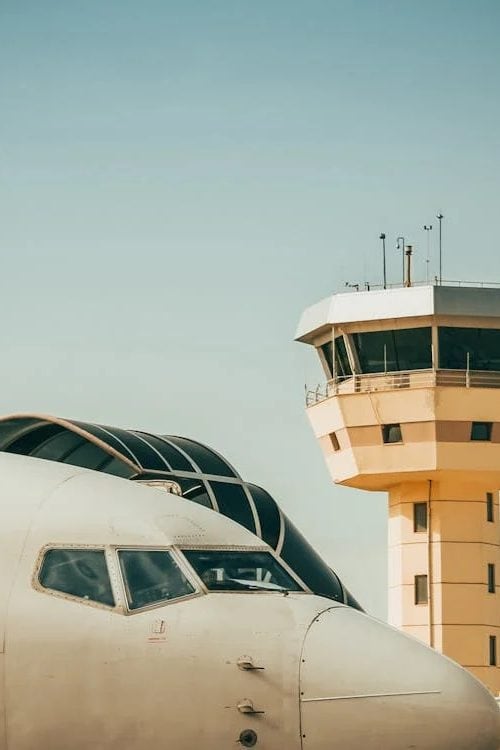The UK’s sustainable aviation fuel (SAF) sector is set to receive a £53 million boost from the government, aiming to reduce carbon emissions by 2.7 million tonnes annually. This investment, part of the Advanced Fuels Fund, supports projects that could generate thousands of jobs and significantly grow the economy. It aligns with the government’s net-zero commitments and the goal of achieving low-carbon flight.
This funding, announced on 17 November 2023, will support nine innovative projects, including utilising forest waste and converting power to liquid fuel. These efforts are expected to save more than 70% in greenhouse gas emissions compared to traditional jet fuel.
Transforming Waste into Wealth: Converting By-Products into Sustainable Fuels
The £135 million Advanced Fuels Fund focuses on transforming waste materials and by-products into sustainable fuels. The current projects span across the UK, from the Orkney Islands to South Wales. They include a demonstration plant for converting forestry waste and a commercial plant for power-to-liquid technology, with a combined potential to produce over 70,000 tonnes of SAF yearly.
In addition to the AFF, a sustainable aviation fuel management system can further help the industry become greener by optimising SAF usage, reducing waste, and promoting transparency. By implementing such a system, airlines, airports, and fuel suppliers can work together to maximise the environmental benefits of SAF and achieve its net-zero emissions goals and contribute to a greener future for air travel.
UK Government Invests in Central Hub and Fuel Testing to Meet Targets and Enhance Safety Standards
The UK is swiftly establishing itself as a global leader in the SAF sector, attracting investment and expertise from around the world. The government’s commitment to this field is evident in its creation of a centralised testing and approval hub, supported by £700,000 in funding. This hub will play a crucial role in streamlining the process of bringing new SAFs to market, removing barriers for international investment and fostering a vibrant SAF ecosystem in the UK.
SAF Investment Fuelling Economic Growth in the UK
The UK’s aviation sector is outstanding, directly adding over £22 billion to the GDP and generating an extra £34 billion from aerospace component exports. This industry also sparks further economic and social benefits, with international visitors spending nearly £30 billion annually in the UK.
Transport Secretary Mark Harper, during the announcement of the £53 million investment plan, emphasised the UK’s rising prominence as a leader in the Sustainable Aviation Fuel (SAF) sector, noting its potential to boost job creation and attract foreign investment.
Regarding economic impact, projections suggest that by 2030, the SAF industry could add £1.8 billion in Gross Value Added (GVA) to the UK economy, primarily through upstream activities. This contribution is expected to surge to £10.1 billion by 2050, with £1.7 billion from direct construction and the rest from the upstream value chain.
Job Creation through SAF Industry Development
New initiatives in Sustainable Aviation Fuel (SAF) are set to generate up to 10,000 green jobs by 2035 and are projected to boost the UK economy by approximately £1.8 billion annually.
The growth in green jobs and economic enhancement from the Sustainable Aviation Fuel (SAF) industry is backed by solid projections. Producing 0.6 million tonnes of SAF by 2030 could lead to the creation of 10,350 jobs, encompassing roles in operations, construction, and upstream sectors. By 2050, this figure is expected to rise to 60,000 jobs within the UK. Moreover, by focusing on decarbonising aviation, the SAF industry could help sustain an additional 210,000 aviation jobs, adapting to a carbon-constrained economy.
A World First Marks the Way
In a further demonstration of the UK’s pioneering spirit, the government has invested up to £1 million in the world’s first commercial transatlantic flight powered solely by SAF. On the 28th of November 2023, Virgin Atlantic made aviation history when one of its Boeing 787s departed from London Heathrow to JFK International Airport in New York, fuelled entirely by 100% sustainable aviation fuel (SAF).
The journey’s success represents a crucial milestone in the aviation industry’s efforts to adopt more sustainable practices, aligning with the objective of achieving net-zero emissions by 2050. The flight was powered by SAF derived from waste fats that are not suitable for the food chain, illustrating a practical solution in utilising waste products to reduce emissions and thereby aiding in the decarbonisation of the skies.
Beyond SAF: Diverse Approaches for a Greener UK Aviation Industry
SAF (Sustainable Aviation Fuel) must be integrated into a diverse strategy to reduce aviation’s carbon footprint. The four primary methods are electricity, hydrogen, bio-SAF, and Power to Liquid SAF (PtL). Each has its pros and cons, underlining SAF’s crucial role in UK aviation’s decarbonisation.
Electric aircraft, affecting mainly short-haul flights, face challenges like battery weight limitations, hindering their immediate impact. Hydrogen’s role will expand as production and logistics improve. Current hydrogen production generates significant CO2, but advancements in green and blue hydrogen can change this. Partnerships like British Airways with ZeroAvia and Rolls-Royce with easyJet are pioneering hydrogen-fuelled flights.
Bio-SAF, derived from organic materials like waste oils and residues, offers a viable, low-weight energy source compatible with existing aircraft and infrastructure. Its production is safe and requires scaling.
Power to Liquid SAF, though more costly, avoids bio-feedstock limitations by using renewable electricity and hydrogen. It shares production technologies with bio-SAF, benefiting from cost reductions in direct air capture and green hydrogen.
A Brighter, Cleaner Sky
The UK’s commitment to sustainable aviation fuel is a testament to its dedication to environmental stewardship and its vision for a greener future. As the world’s aviation industry continues to grow, the UK stands ready to lead the way in developing and deploying sustainable solutions, ensuring that flying remains a mode of transport that does not come at the expense of our planet’s health.
With this significant investment and the establishment of world-leading SAF infrastructure, the UK is laying the foundation for a future where air travel is not just a mode of transport but a source of positive environmental impact.
The journey towards a sustainable aviation industry is well underway, and the UK is poised to be at the forefront of this transformative movement, leaving a legacy of cleaner skies and a healthier planet for generations to come.
CONTACT OUR TEAM TODAY
If you are struggling with flight support or any of its complexities, feel free to contact our team today for more information.
Aviation News
Aviation Guides
- What is Sustainable Aviation Fuel?
- A Short Guide to FBO’s – the Dos and Dont’s
- Current Risks to Aviation
- How Air Cargo is Revolutionising the Global Economy
- The Cost To Operate A Private Jet
- Infrastructure For Sustainable Aviation Fuel
- Why There Is A Need To Improve Aviation Industry
- Emergency Flight Charter
- Diplomatic Flight Operations




